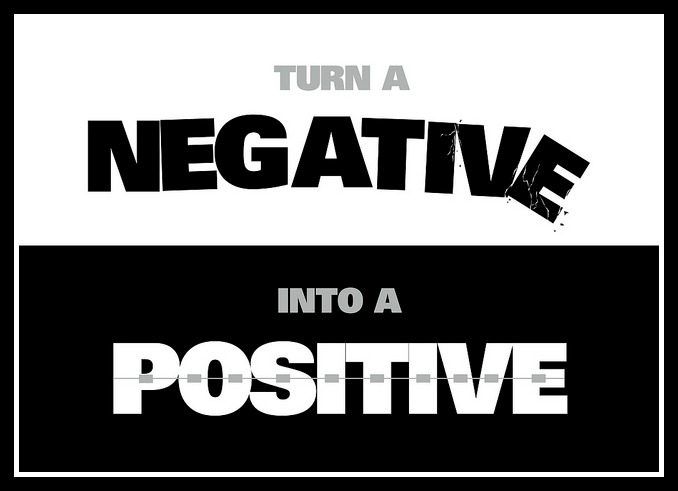 Photo Credit: Dan White
Photo Credit: Dan White What are some of your most important goals in life? Do you want to strengthen your relationships with others? Or do you want to prevent conflicts? Do you want to achieve success in your career? Or are you more concerned with avoiding being fired or laid off? Psychologists have found that subtle differences in how we frame our goals can have important effects. In today’s post, I’ll explain how thinking about our goals differently can have important consequences for well-being, and show how different types of goals play out in two important areas: relationships and education.
What are approach and avoidance goals? Researchers have suggested that approaching good outcomes and avoiding bad outcomes are two of the most fundamental human motivations. Consequently, many of our important life goals can be framed in one of two ways: as a good outcome one wants to achieve (“I want to get an A on that test”) or a bad outcome one wants to avoid (“I don’t want to fail that test”). The first category is called approach goals and the latter is called avoidance goals.
How do goals affect well-being? One study found that people who had a greater number of avoidance goals had lower self-esteem, less optimism, and greater depression, while having a greater number of approach goals was associated with less depression. Goals even relate to physical health: having a higher number of avoidance goals is related to having increases in physical health symptoms (such as headaches, stomachaches, and sore throat) over time. So if you find that you instinctively frame your goals in avoidant ways, you may want to try the opposite: for example, try writing down some approach-oriented goals, and see if pursuing these goals feels different to you.
How do goals impact our relationships? Psychologists have found that approach and avoidance goals can impact the quality of our interpersonal relationships. Having approach goals in relationships (e.g. wanting to become closer to a friend or significant other) is related to being happier with one’s social life, being less lonely, and having higher levels of well-being. On the other hand, avoidance goals in relationships (e.g. not wanting to break up) actually predict increases in loneliness and in physical health symptoms.
Can the right goals affect your grades? Researchers have applied research on approach and avoidance to education as well. In one study, researchers divided college students’ goals into three types: mastery (learning the material), performance-approach (achieving a good grade), and performance avoidance (trying not to fail). They found that mastery goals were associated with being more interested in learning for its own sake, and that performance-approach goals were related to better grades. Performance-avoidance goals, on the other hand, were related to lower motivation and lower grades.
When we’re focusing on self-improvement, it’s easy to forget about the way in which we frame our goals. However, the research suggests that certain ways of thinking about goals (lose 10 pounds, avoid getting rejected on that date) are less beneficial than others (start to feel healthier, make a connection with another person). Wording our goals in a positive way is a subtle change, but the existing research suggests that even a subtle change like this may help you to be more successful.
Further Reading:
Andrew Elliot & Todd Thrash: Approach and Avoidance Temperament as Basic Dimensions of Personality
Erik Coats: Approach Versus Avoidance Goals: Differences in Self-Evaluation and Well-Being
Andrew Elliot & Kennon Sheldon: Avoidance Personal Goals and the Personality-Illness Relationship
Shelly Gable & Emily Impett: Approach and Avoidance Motives and Close Relationships
Andrew Elliot & Marcy Church: A Hierarchical Model of Approach and Avoidance Achievement Motivation
About this Contributor: Elizabeth Hopper is a PhD candidate in Social Psychology at the University of California, Santa Barbara. Prior to attending UCSB, she received her BA in Psychology and Peace & Conflict Studies from UC Berkeley and worked in a research lab at UC San Francisco studying health psychology. Her research interests include positive emotions, close relationships, coping, and health. Outside of the research lab, Elizabeth can often be found going to yoga class, teaching her puppy new tricks, and working on her creative writing.
Leave a reply
You must be logged in to post a comment.

Clark Rector, M.A. said on December 17, 2014
A quote came to mind as I read this, I saw this on a fridge magnet at my workplace:
“Don’t be pushed by your problems, be led by your dreams.”
Kim Pratt, LCSW said on December 19, 2014
Nice quote, Clark. I agree — a shift in perspective, even just a slight one, can go a long way when it comes to not only goals, but our experiences in general. Elizabeth, thank you for framing the benefits of ‘approach’ vs. ‘avoidance’ so clearly.